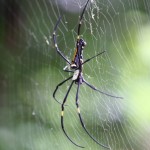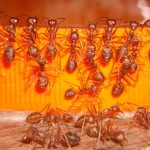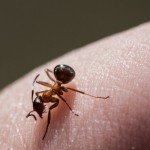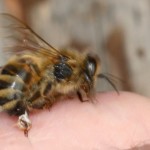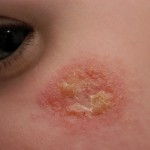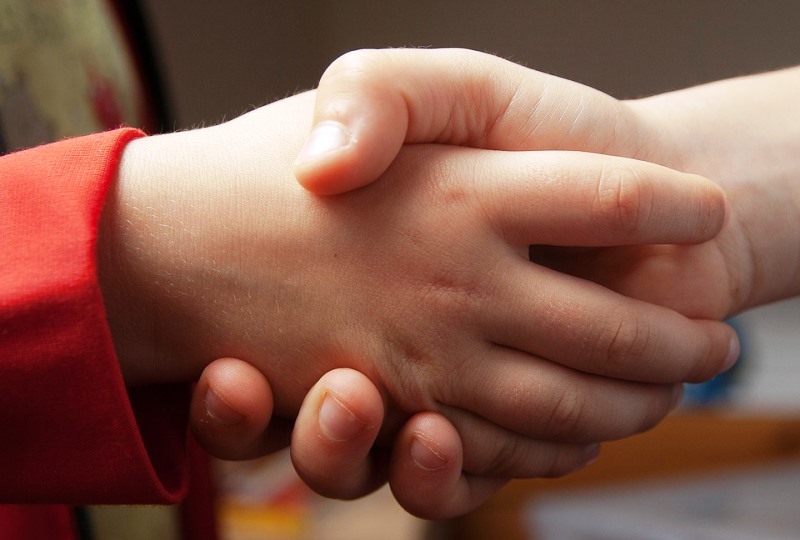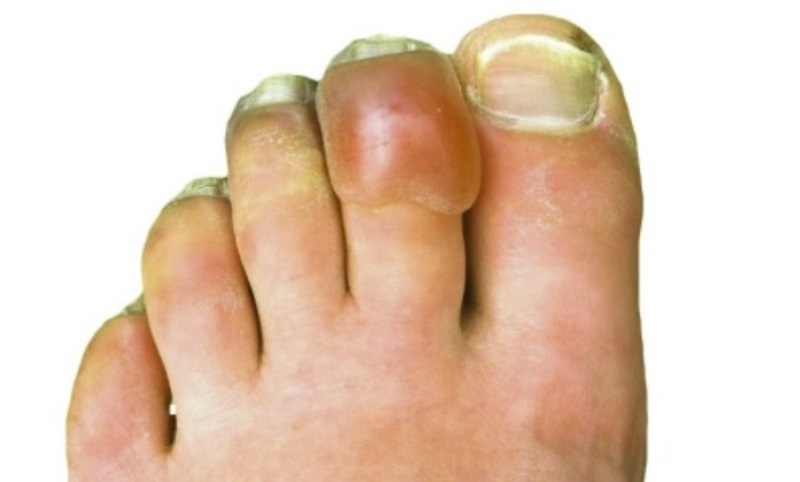It’s not very common to get bitten by a spider. Unless you were playing with it, or were taunting it. Spiders don’t usually bite humans like some other insects, but for using it as a defense mechanism. An injury caused by the bite of a spider is called arachnidism, and in most cases, it’s nothing to be concerned about.
However, spider bites can manifest certain mild physical symptoms, including:
- Redness
- Inflammation
- Itching
- Pain
- Swelling
Suggested read: 12 amazingly effective home remedies for skin rashes
It’s the spider venom that causes the physical symptoms. These symptoms subside and heal on their own in a few days to even weeks, depending on the type of spider that bit you. To speed up the healing process, you can look at some effective home remedies for spider bites though.

Image source: Google, copyright-free image under Creative Commons License
NOTE: If the spider that bit you is a black widow or a brown recluse spider, then immediate medical attention needs to be sought, as these are poisonous. Plus, if you’re not too sure about the kind of spider that did bite you, then too, immediate medical attention is recommended. After all, it’s better to be safe than sorry.
Symptoms of spider bites by dangerous species
If you notice these symptoms after being bitten by a spider, then you need to get medical attention as soon as possible:
- Intense pain and stiffness in the bite site
- Muscle spasms
- Severe swelling
- Extreme redness
- Abdominal pain
- Fever and chills
- Vomiting
- Shortness of breath
- Dizziness
Home remedies for spider bites
Let’s take a look at some of the natural home remedies for spider bites that help ease the symptoms, while also promoting healing.
1. Ice pack
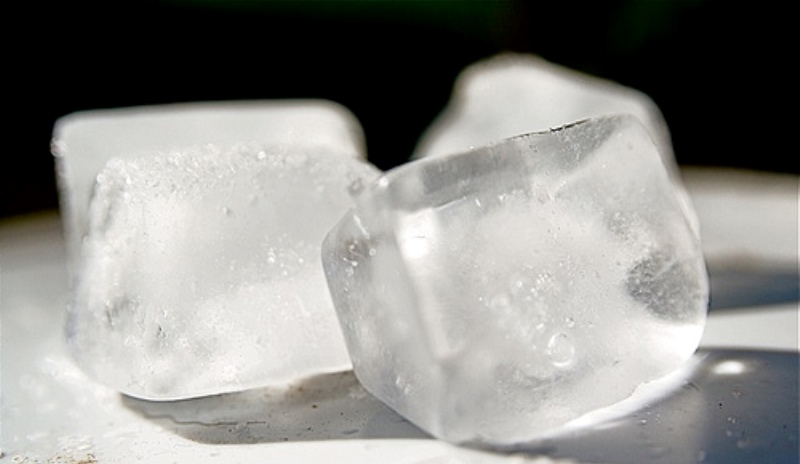
Image source: Google, copyright-free image under Creative Commons License
The first thing you need to do after getting bitten by a spider is to cleanse the bite site using a mild soap and plain water. Pat it dry gently, and apply an ice pack on the bite site. Not only will the cold temperature help numb the affected area, it will also help soothe the itching, while also reducing the inflammation and swelling.
Remedies
- Put some ice cubes in a thin towel and tie the ends. Place it on the bite site for 10 minutes, repeating it as needed at regular intervals.
- Alternatively, you can also place the bite site under cool running water for a few minutes, repeating as needed.
Pro tip: Avoid putting ice cubes directly on your skin.
2. Activated charcoal
Activated charcoal has an innate property of absorption, that helps suck out the toxic substances in the body. Once the venom is out of the body, the swelling, tenderness, and inflammation subside automatically.
Remedies
- Take some activated charcoal, and mix it with water to make a paste. Spread this paste on the bite site after cleansing it with warm water. Cover the bite site with a bandage so that the paste stays on the wound. Repeat this every 3 hours on the day of the bite, so that it helps accelerate the venom drawing process.
- Consult a doctor and ingest activated charcoal capsules. This is as effective as the above mentioned remedy.
3. Aloe vera

Image source: Pixabay, under Creative Commons License
Aloe vera is super effective in treating spider bites. It contains anti-inflammatory, antiseptic, and soothing properties, which make it ideal for reducing pain, itching, and swelling. Plus, it also contains moisturizing properties, which help promote the healing process.
Remedy
- Slice open a fresh aloe vera leaf and scoop out the gel into a clean bowl. Apply this gel liberally on the bite site. Repeat this as many times as needed through the day, for a couple of days after the bite. No need to wash it, as your skin absorbs the gel.
4. Apple cider vinegar
Apple cider vinegar is an excellent remedy for treating spider bites since it possesses anti-inflammatory, anti-bacterial, and antioxidant properties. Plus, the acetic acid present in the vinegar helps level the pH balance in your body, thereby killing off any bacteria and reducing the inflammation and pain at the bite site.
Remedies
- To a glass of warm water, add 2 tablespoons of raw, unfiltered apple cider vinegar, and stir. Drink this every day for a few days to see visible results.
- Stir in 2 tablespoons of apple cider vinegar in a glass of clean water, and spray this on the affected area every night before you hit the bed. Let it air dry, and the following morning, rinse it clean with plain water. Repeat this every night for a few days for best results.
5. Aspirin
Aspirin mainly helps bring down the swelling and inflammation, while also helping ease any pain. Plus, it helps neutralize the venom, which is what is most important when bitten by a spider.
Remedy
- Take 1 – 2 aspirin tablets and soak it in a bit of water. Once they start disintegrating, make a paste out of it, and apply it on the bite site. Let it sit for a couple of hours, before rinsing it off with lukewarm water. Repeat this remedy at least twice more, as and when needed.
Suggested read: 12 practical methods of getting rid of pesky bed bugs once and for all
6. Baking soda

Image source: Google, copyright-free image under Creative Commons License
Baking soda is sodium bicarbonate, which helps neutralize the venom by drawing it out, thereby reducing the inflammation, pain, and itching.
Remedy
- Take 1 teaspoon of baking soda and mix it in with 3 teaspoons of water to make a runny paste. Using a cotton ball, dab this paste on the bite site, leaving it on for about 5 – 10 minutes. Wash it off with tepid water. Repeat this remedy as needed, if the symptoms persist.
7. Basil
Basil contains anti-inflammatory, anti-bacterial, and anti-fungal properties, which are essential in healing a spider bite. Basil leaves act on the bite site, helping reduce the inflammation as well as the itching.
Remedy
- Crush a few basil leaves and rub it gently on the bite site. Leave it on for 20 minutes, before rinsing it off with cool water. Repeat as needed for a few days.
8. Cabbage
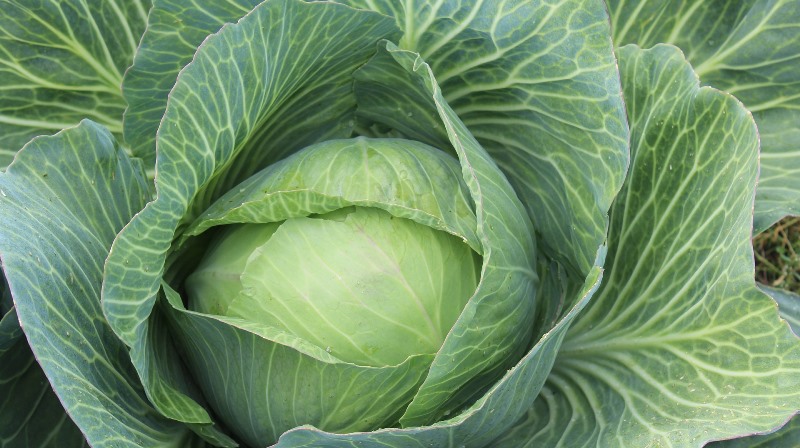
Image source: Pixabay, under Creative Commons License
Cabbage belongs to the cruciferous vegetable family, and boasts a high amount of powerful antioxidants, which help ease the inflammation and swelling caused by a spider bite. Plus, it promotes healing, which is essential for a spider bite.
Remedy
- Cut a smallish piece of cabbage and grate it. Place these gratings on the bite site, covering it up with a bandage. Leave it on overnight, which helps draw out the venom, thereby facilitating healing.
9. Garlic

Image source: Pixabay, under Creative Commons License
Garlic is a pungent bulb, which helps neutralize the venom left by the spider bite. Plus, it contains certain compounds that help in the healing process by reducing the swelling and inflammation.
Remedy
- After cleansing the bite site, place garlic slices on it and cover it with a bandage. Leave it on overnight, so that it can act on the venom. Repeat this once or twice over the next couple of days to see positive results.
10. Lemon juice
Lemon juice contains vitamin C, which is an antioxidant, which helps reduce the swelling, inflammation, and swelling at the bite site. Plus, it astringent properties help dry out the skin rashes, while also helping prevent infection at the bite site.
Remedies
- Take 1 teaspoon of lemon juice in a clean bowl. Use a cotton ball to dab this on to the bite site, leaving it on to air dry. Then, rinse it off using tepid water.
- Take a piece of lemon and rub it gently on the bite site for about 2 – 3 minutes. Let it air dry for another 5 minutes, before washing it off with lukewarm water.
11. Peppermint
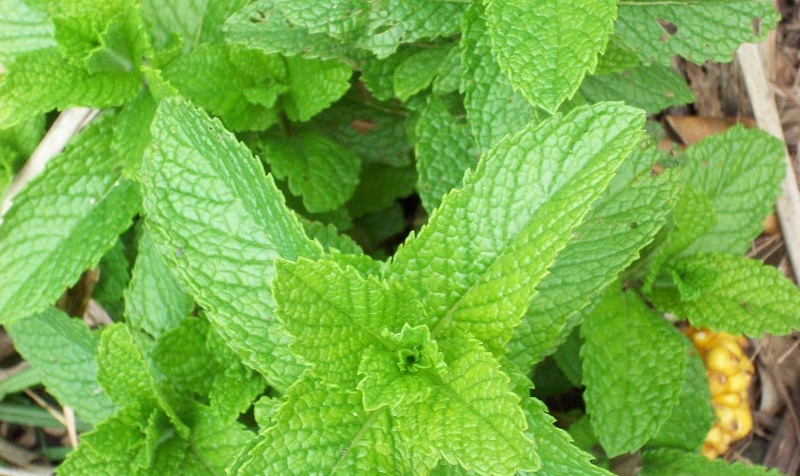
Image source: Pixabay, under Creative Commons License
Peppermint possesses analgesic and anti-inflammatory properties, that help relieve pain, inflammation, and swelling caused by spider bites. Plus, it also helps relieve the itching at the bite site.
Remedies
- Take a few fresh peppermint leaves and crush them to extract a bit of juice. Dab this on the affected area, leaving it on for 20 minutes, before rinsing it off with cool water. Repeat this remedy once or twice over the next couple of days, as needed.
- Put 1 or 2 drops of peppermint oil on the affected area twice or thrice a day to see positive results.
12. Turmeric
Turmeric is a natural painkiller, which possesses antiseptic, antioxidant, and anti-inflammatory properties. It helps promote healing by reducing the inflammation, swelling, and pain at the bite site.
Remedies
- Take 1 teaspoon of turmeric and add it to 2 teaspoons of olive oil to form a paste. Smear this paste on the bite site, leaving it on for 10 minutes, before washing it off with tepid water.
- In a blender, add a handful of neem leaves, 1 tablespoon of turmeric, and a bit of water to form a thick, smooth paste. Apply this paste on the affected area, letting it sit for 20 minutes. Then, wash it off using lukewarm water.
13. Potatoes

Image source: Google, copyright-free image under Creative Commons License
Potatoes help in reducing the itching and inflammation from the spider bite site, thanks to its anti-irritating properties. Plus, it also helps keep the affected area moisturized to promote quick healing.
Remedy
- Peel 1 large potato, wash it, and grate it into a clean bowl. Take a handful of these gratings and tie it inside a piece of thin cloth. Place this potato poultice on the affected area, which has already been cleansed and cleaned with rubbing alcohol. Leave it on till it becomes dry. Then, discard the gratings inside the cloth and replace it with a fresh batch and repeat a couple of times.
Suggested read: 15 superbly effective home remedies for bed bug bites
14. Salt
Salt is antiseptic and anti-inflammatory in nature, which helps draw out the venom from the spider bite. Plus, it also helps reduce the inflammation and the redness from the bite site.
Remedy
- After cleansing the bite site with lukewarm water, sprinkle 2-3 pinches of table salt onto a wet washcloth. Use this as a bandage on the bite site, leaving it on for a couple of hours. Remove it, and reapply as needed.
These are all the effective home remedies for spider bites that promote healing, while reducing the inflammation and pain from the bite site. If symptoms persist even after a couple of days, then seek medical help.
Featured image source: Google, copyright-free image under Creative Commons License



